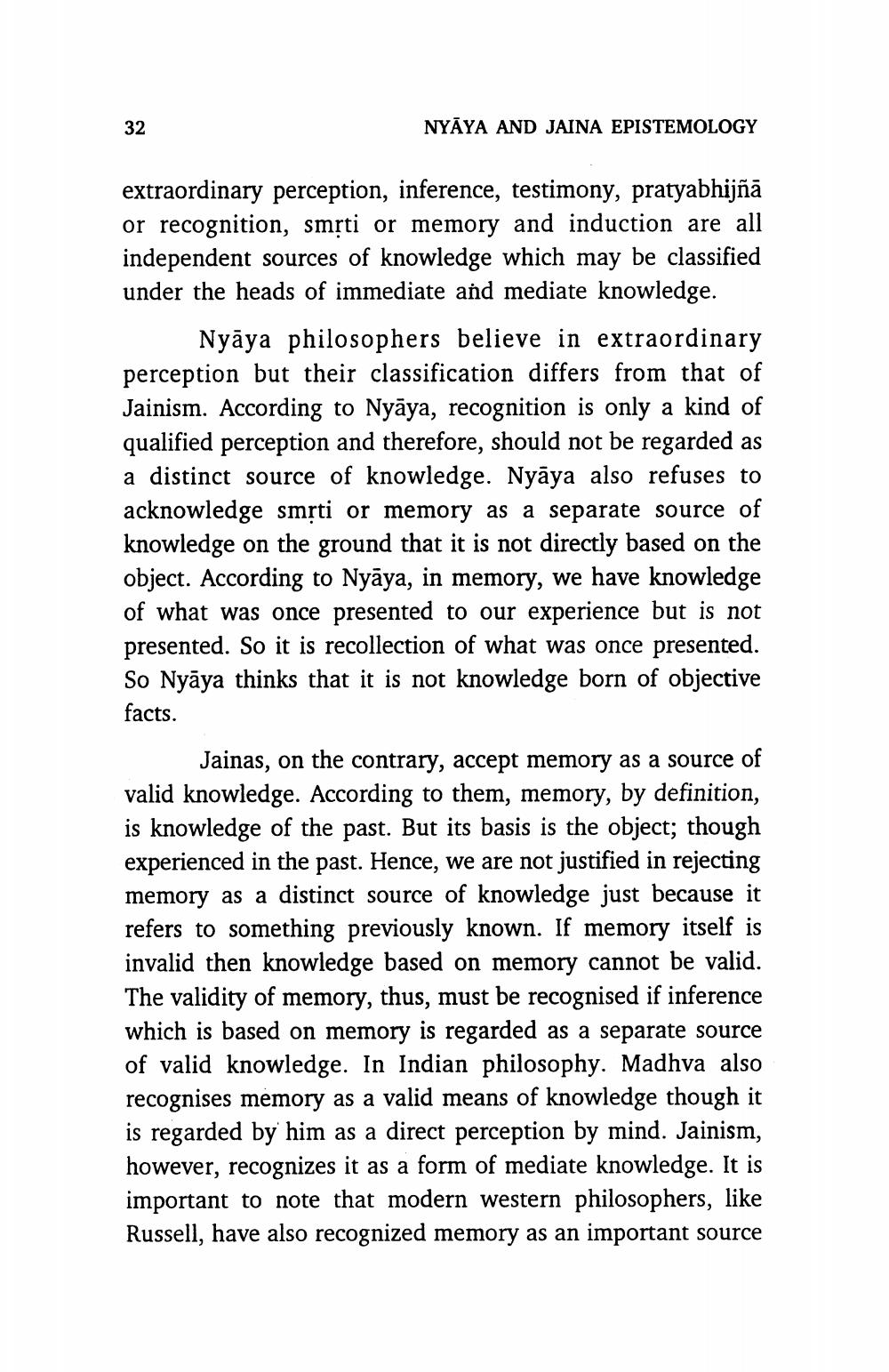________________
32
NYAYA AND JAINA EPISTEMOLOGY
extraordinary perception, inference, testimony, pratyabhijñā or recognition, smrti or memory and induction are all independent sources of knowledge which may be classified under the heads of immediate and mediate knowledge.
Nyaya philosophers believe in extraordinary perception but their classification differs from that of Jainism. According to Nyaya, recognition is only a kind of qualified perception and therefore, should not be regarded as a distinct source of knowledge. Nyāya also refuses to acknowledge smrti or memory as a separate source of knowledge on the ground that it is not directly based on the object. According to Nyaya, in memory, we have knowledge of what was once presented to our experience but is not presented. So it is recollection of what was once presented. So Nyāya thinks that it is not knowledge born of objective facts.
Jainas, on the contrary, accept memory as a source of valid knowledge. According to them, memory, by definition, is knowledge of the past. But its basis is the object; though experienced in the past. Hence, we are not justified in rejecting memory as a distinct source of knowledge just because it refers to something previously known. If memory itself is invalid then knowledge based on memory cannot be valid. The validity of memory, thus, must be recognised if inference which is based on memory is regarded as a separate source of valid knowledge. In Indian philosophy. Madhva also recognises memory as a valid means of knowledge though it is regarded by him as a direct perception by mind. Jainism, however, recognizes it as a form of mediate knowledge. It is important to note that modern western philosophers, like Russell, have also recognized memory as an important source




